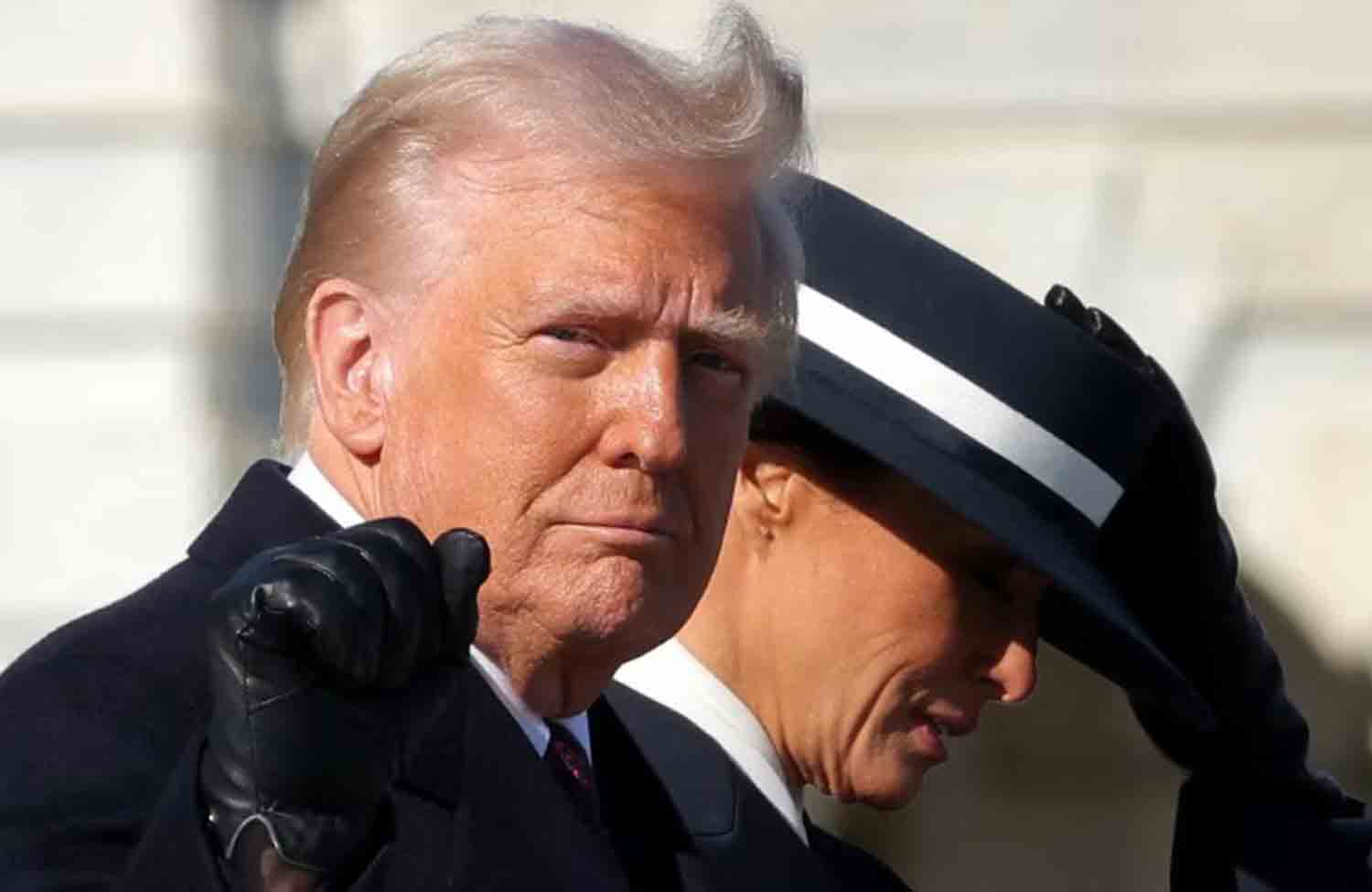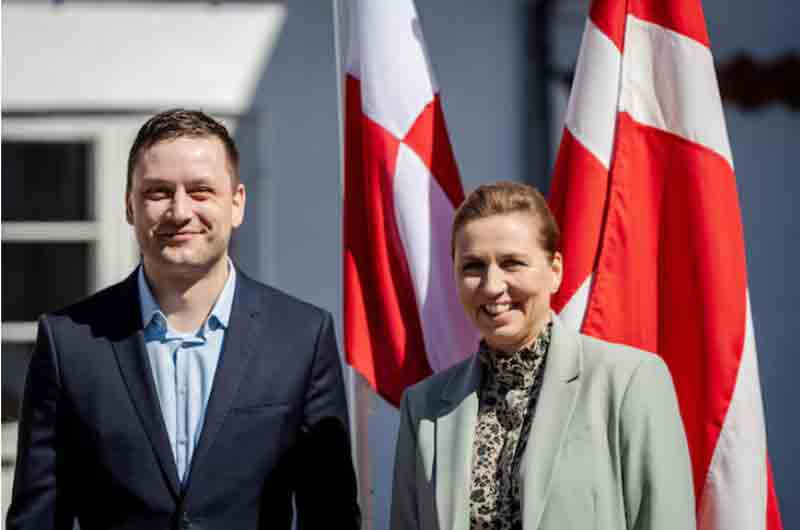He has initiated an unprecedented global tariff conflict and significantly reduced U.S. foreign aid. He has criticized NATO allies while aligning with Russia’s perspective on its invasion of Ukraine. Additionally, he has proposed the annexation of Greenland, the reclamation of the Panama Canal, and the incorporation of Canada as the 51st state. In the tumultuous first 100 days since President Donald Trump resumed office, he has conducted an often erratic campaign that has disrupted elements of the rules-based international order established by Washington in the aftermath of World War II.
‘Trump is far more radical now than he was eight years ago,’ remarked Elliott Abrams, a conservative who served under Presidents Ronald Reagan and George W. Bush and was appointed U.S. special envoy on Iran and Venezuela during Trump’s first term. ‘I have been taken aback.’ Trump’s second-term ‘America First’ policy has estranged allies and empowered adversaries, raising questions about the extent of his ambitions. His actions, combined with this uncertainty, have unsettled some governments, prompting responses that may be challenging to reverse, even if a more conventional U.S. president is elected in 2028.
This situation unfolds against a backdrop of what critics of the Republican president perceive as signs of democratic decline at home, which have sparked international concerns. These signs include verbal assaults on judges, a campaign of pressure against universities, and the relocation of migrants to a notorious prison in El Salvador as part of a broader deportation initiative.
‘What we are witnessing is a significant upheaval in global affairs,’ stated Dennis Ross, a former Middle East negotiator for both Democratic and Republican administrations. ‘At this juncture, no one can definitively interpret the current events or predict what will follow.’
This evaluation of Trump’s disruption of the global system is based on interviews conducted by Reuters with over a dozen current and former government officials, foreign diplomats, and independent analysts in Washington and other capitals worldwide.
Many believe that although some of the damage may be enduring, the situation could still be salvageable if Trump moderates his stance. He has already reversed his position on certain matters, such as the timing and intensity of his tariffs.
However, there is little expectation for a significant change from Trump, leading many nations to anticipate lasting adjustments in their relations with the U.S. to protect themselves from his unpredictable policy decisions. The repercussions have already started. For example, some European allies are seeking to enhance their own defense capabilities to lessen their dependence on U.S. military supplies.
In South Korea, discussions have intensified regarding the development of an independent nuclear arsenal. Additionally, there is growing speculation that worsening relations might drive U.S. allies to strengthen economic ties with China. The White House dismisses claims that Trump has undermined U.S. credibility, instead pointing to the need to rectify what it describes as former President Joe Biden’s ineffective leadership on the global stage.
White House National Security Council spokesman Brian Hughes stated, ‘President Trump is taking decisive action to tackle challenges by bringing both Ukraine and Russia to the negotiating table to resolve their conflict, curbing the flow of fentanyl, and protecting American workers by holding China accountable, as well as compelling Iran to negotiate through Maximum Pressure.’
He also mentioned that Trump is ‘making the Houthis accountable for their terrorism and securing our southern border that was open to invasion for four years.’ According to a Reuters/Ipsos poll released on March 13, more than half of Americans, including one in four Republicans, believe Trump is ‘too closely aligned’ with Russia, and there is little public support for the expansionist agenda he has proposed.
High stakes
Experts warn that the future of a global system, established over the last eighty years primarily under U.S. leadership, is at risk. This system is founded on principles of free trade, the rule of law, and respect for territorial integrity. However, under Trump’s administration, which has shown disdain for multilateral organizations and often approaches global issues from a transactional perspective akin to that of a former real estate developer, this established order is facing significant disruption.
Trump has accused trading partners of exploiting the U.S. for decades and has initiated a broad tariffs policy that has unsettled financial markets, diminished the dollar’s value, and raised alarms about a potential slowdown in global economic growth and an increased risk of recession. He has described the tariffs as essential ‘medicine,’ yet his goals remain ambiguous, even as his administration seeks to negotiate individual agreements with numerous countries.
Concurrently, he has nearly reversed U.S. policy regarding Russia’s ongoing conflict in Ukraine and engaged in a heated exchange with Ukrainian President Volodymyr Zelenskiy in late February. His administration has shown a tendency to favor Moscow, raising concerns that he may compel NATO-supported Ukraine to concede territory while he seeks to enhance relations with Russian President Vladimir Putin.
The administration’s dismissive attitude towards Europe and NATO—historically the cornerstone of transatlantic security, yet criticized by Trump and his team for allegedly taking advantage of the U.S.—has generated significant anxiety. Following his election victory in February, German Chancellor Friedrich Merz voiced worries about European relations with the United States, suggesting that it would be challenging if those who advocate for ‘America First’ were to adopt the motto ‘America Alone.’ ‘This truly is five minutes to midnight for Europe,’ Merz remarked.
In a significant setback for Washington’s international reputation, Trump has adopted expansionist language that modern presidents have typically avoided. Analysts warn that this rhetoric could provide China with a rationale for invading self-governed Taiwan. His brash demeanor has led him to assert that the U.S. will ‘acquire’ Greenland, a semi-autonomous territory of Denmark. He has provoked Canada by suggesting it lacks purpose and should merge with the U.S.
Additionally, he has threatened to reclaim the Panama Canal, which was returned to Panama in 1999. Trump has also proposed that the U.S. take control of war-torn Gaza and develop it into a resort akin to the Riviera. Some experts believe he may be attempting to revive a Cold War-like global order where major powers divide regions of influence.
However, he has not provided specifics on how the U.S. might gain additional territory, leading some to speculate that he is adopting exaggerated positions as negotiation tactics. Nevertheless, certain nations are taking his statements seriously. Danish Prime Minister Mette Frederiksen expressed concern during a news conference in Greenland in early April, stating, ‘When you demand to take over a part of the Kingdom of Denmark’s territory, and we are confronted with pressure and threats from our closest ally, what are we to believe about the country we have respected for so long? This concerns the world order we have collectively built across the Atlantic over generations.’
Navigating Trump 2.0
Other nations are starting to adjust their strategies. The European Union, which Trump has unfoundedly accused of being established to undermine the U.S., is readying a series of retaliatory tariffs should negotiations falter. Countries like Germany and France are considering increasing their military expenditures, a demand from Trump that may lead them to invest more in their own defense sectors and reduce arms purchases from the U.S. With the longstanding relationship with the U.S. now under strain, Canada is looking to enhance its economic and security ties with Europe.
This shift occurs in the context of Canada’s upcoming national elections, which are heavily influenced by voter discontent with Trump’s actions, sparking a nationalist sentiment and raising doubts about the U.S. as a dependable ally. Similarly, South Korea has been unsettled by Trump’s policies, including threats to withdraw U.S. troops, yet it remains committed to collaborating with Trump to maintain an alliance deemed essential against the nuclear threat from North Korea.
Japan, another U.S. ally, is also feeling the pressure, having been caught off guard by the extent of Trump’s tariffs and is now urgently seeking ways to respond, according to a senior official close to Prime Minister Shigeru Ishiba.
A significant concern is whether some governments will discreetly seek closer trade relations with China, the primary target of Trump’s tariffs. In early April, Spanish Prime Minister Pedro Sanchez met with President Xi Jinping in Beijing, and China has recently indicated discussions with the EU aimed at enhancing economic cooperation.
Beijing is positioning itself as a potential ally for countries feeling pressured by Trump’s trade policies, despite its own history of sometimes aggressive international practices, and is also attempting to fill the gap left by reductions in U.S. humanitarian aid.
Aaron David Miller, a seasoned former U.S. diplomat who served under both Republican and Democratic administrations, stated that there is still an opportunity for Trump to alter his foreign policy approach. This is particularly relevant if he begins to feel pressure from Republican colleagues who are concerned about economic implications as they aim to maintain their majority in Congress during the upcoming mid-term elections.
Should Trump remain steadfast, the next president may attempt to restore Washington’s position as a stabilizing force in global affairs, although significant challenges lie ahead.
‘The situation has not yet reached an irreversible state,’ Miller, now a senior fellow at the Carnegie Endowment for International Peace in Washington, remarked. ‘However, the extent of the damage to our relationships with allies and the potential advantages for adversaries is likely immeasurable.’
Discover more from Defence Talks | Defense News Hub, Military Updates, Security Insights
Subscribe to get the latest posts sent to your email.





